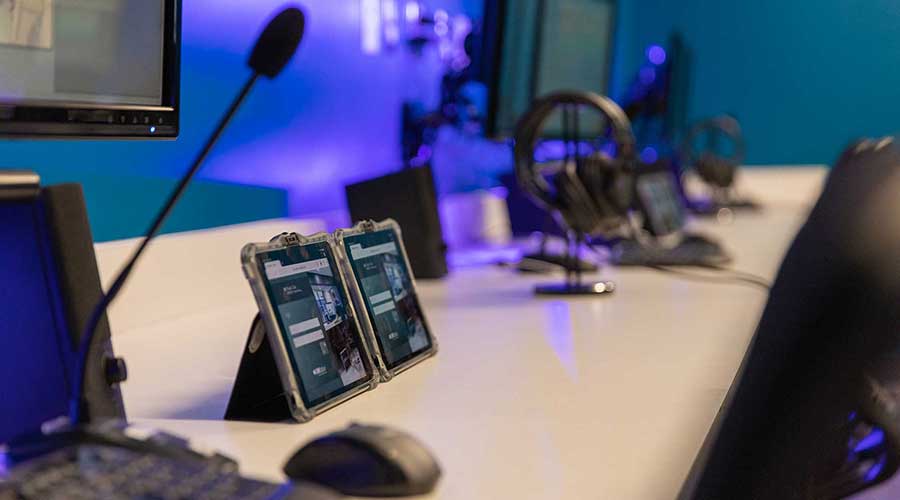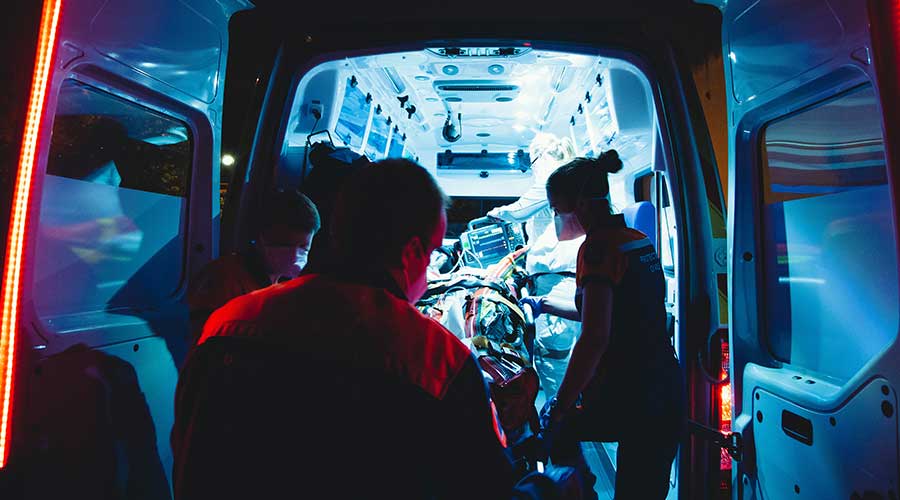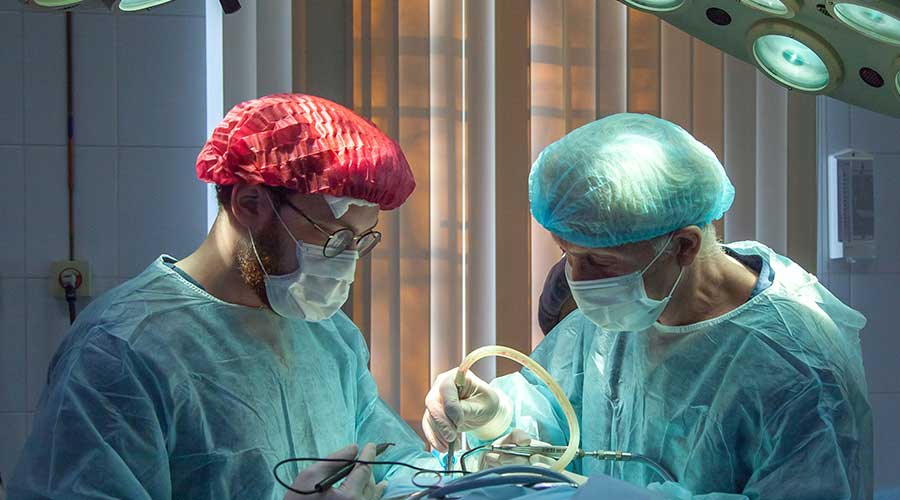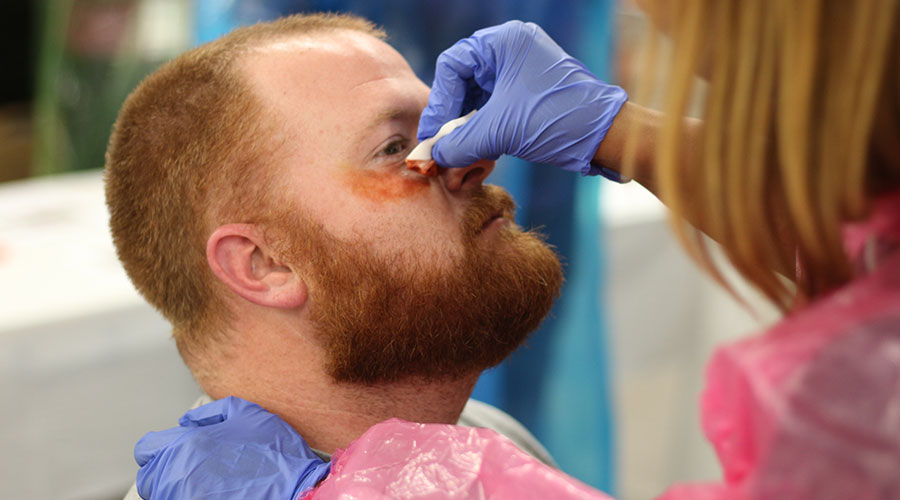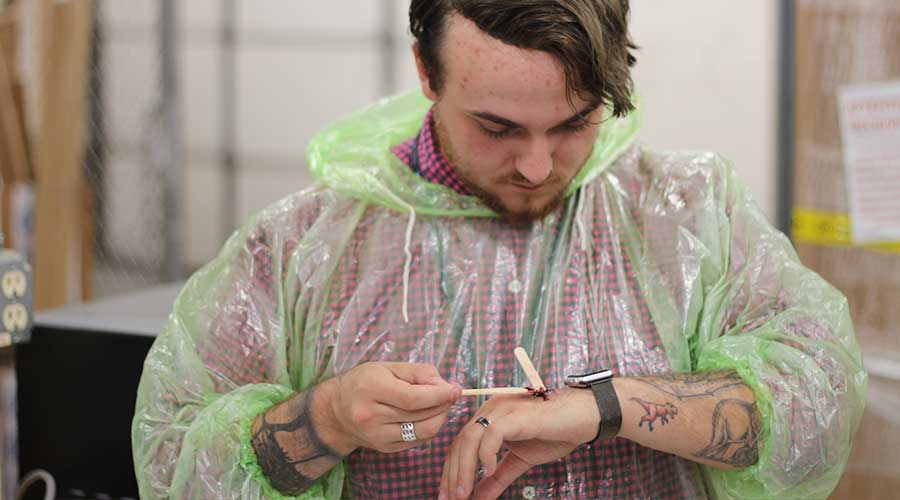Simulation labs are operating under new guidelines in the COVID-19 era
When the coronavirus pandemic swept through the U.S. at the start of 2020, it forced the partial or complete closure of medical simulation training labs for healthcare students. Now, over a year later, COVID-19 is still ravaging the world and delaying the return to work, school, public events, and other activities.
Unfortunately, the longer students remain out of the lab, the more their education suffers. Healthcare simulation is a vital tool for teaching our future medical professionals valuable clinical, communication, decision-making, and teamwork skills. With that thought in mind, many simulation labs in Los Angeles, CA, and across the U.S. are considering reopening.
on Monday, 30 August 2021.
Posted in Medical Simulation Training, Los Angeles, CA , Medical Simulation Training
The fanciest manikin and most up-to-date medical equipment won’t make much difference in your simulation center if you don’t have audio and video tools that allow students and teachers to communicate clearly during scenarios, as well as review and debrief scenarios once they are over. With the right planning, however, you can design and install AV systems that support and enhance simulation in your center. At Level 3 Audiovisual’s recent Simulation Operations Boot Camp Scott Atkinson, Director of Healthcare Simulation, outlined five things to consider before you start the AV design and engineering process for your simulation center.
on Monday, 23 December 2019.
Posted in Healthcare Simulation, Medical Simulation, Medical Simulation Training
Good Patient Outcomes Depend on Effective Teamwork
The goal of every healthcare professional, from doctors and nurses to EMTs to pharmacists is the same: to provide positive outcomes for their patients. That goal, however, is not always easy to achieve. According to statistics reported by the National Institutes of Health (NIH), around 400,000 hospitalized patients in the United States experience some kind of preventable harm every year. Improved medical training through high-fidelity healthcare simulation can go a long way in better preparing healthcare providers and therefore reducing errors and improving outcomes. But improving providers’ individual skills and competencies is only part of the equation. Healthcare providers also need to learn how to work together and communicate effectively as part of a multidisciplinary team to improve overall medical care outcomes. Level 3 Audiovisual hosts quarterly skills camps, focused on teamwork training for healthcare students and professionals. Keep reading to learn more about the model that will be presented—and the benefits it could bring to your simulation center.
on Wednesday, 11 December 2019.
Posted in Medical Simulation Training
THIS CERTIFICATION CAN BE A CAREER BOOST FOR SIM TECHS
As a healthcare simulation professional, your focus is providing training opportunities for healthcare students and professionals that will ultimately help them improve patient outcomes, and that takes a lot of different types of equipment. There are healthcare technologies such as manikins and vital sign monitors. There are AV technologies such as displays, cameras, speakers, and microphones. And much of that technology must interface with a larger IT network. Managing all those technologies and requirements, however, can take a sim tech’s focus away from running successful trainings, especially if you are unfamiliar with some of the tools in your healthcare simulation center. For example, an EMT-turned-sim tech will be familiar with medical terminology and equipment, but might be completely lost when it comes to running the AV equipment that is a critical part of every healthcare simulation center. AV industry certifications such as the Certified Technology Specialist™ (CTS®) program can help sim techs round out their skill set and provide more comprehensive service to their healthcare simulation centers.
on Wednesday, 06 November 2019.
Posted in Medical Simulation Training, Simulation Training
For many careers and professions there is a clear path to get from where you are to where you want to be. If you want to be an engineer, you get an engineering degree. If you want to be a doctor, you go to medical school. But if you want to be a simulation technician or simulation operations specialist, the way forward is a little less clear. There is no standardized degree, certification, or educational path for simulation specialists, and people come to simulation from a variety of backgrounds including nursing, emergency response, IT, and administration.
on Tuesday, 20 August 2019.
Posted in Medical Simulation Training, Simulation Training
Just like cheesy special effects can ruin a superhero movie, unrealistic wounds and symptoms can ruin a healthcare simulation scenario. Healthcare simulation training is the gold standard for improving both clinical competence and patient outcomes, but it works best if the scenario seems real. Moulage—special effects makeup for simulation—enhances the realism of your simulation scenarios and provides visual cues for diagnosis and treatment. And, luckily, you don’t need a movie studio special effects department to create it. Keep reading for hacks and tips to create realistic moulage on a budget.
on Tuesday, 28 May 2019.
Posted in Medical Simulation Training, Simulation Training
As the healthcare simulation industry gets bigger, it also gets more competitive. Simulation programs are growing, simulation technology is evolving, and anyone interested in a career in healthcare simulation needs to stay ahead of it all. To give current and future simulation technicians and operations specialists a leg up on their competition, Level 3 Audiovisual recently hosted the Simulation Operations Boot Camp. With participants from New Mexico to Nova Scotia, and one presenter calling in from India, the three-day event covered the basics every simulation technician or operations specialist should know.
on Sunday, 12 May 2019.
Posted in Medical Simulation Training, Simulation Training
Every prank-loving adolescent knows all it takes is a little corn syrup and food coloring to whip up a batch of fake blood that will scare the pants off an unsuspecting mom, sibling or neighborhood friend. But recreating realistic wounds and injuries isn’t just for April Fools’ Day or Halloween. Special effects make up—or moulage—can also be an effective and affordable way to create realistic medical simulation scenarios that enhance and improve the learning experience.
on Monday, 22 April 2019.
Posted in Medical Simulation Training, Simulation Training
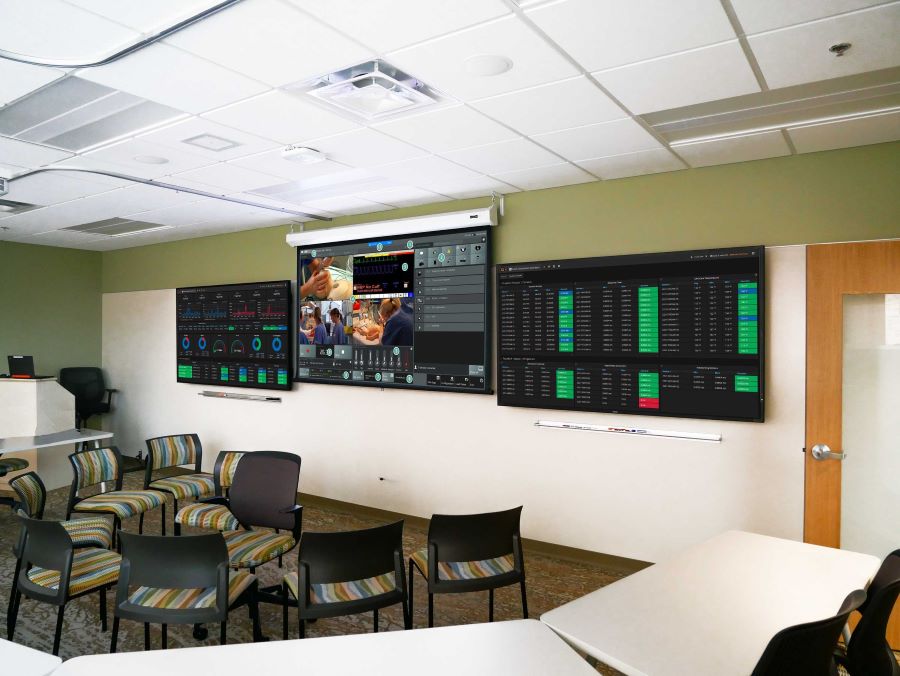 4 Considerations for Getting Your Med Sim Lab Back Up and Running
4 Considerations for Getting Your Med Sim Lab Back Up and Running 